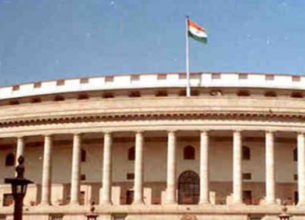CABINET APPROVES BILL TO REGULATE SURROGACY
27, Feb 2020

Prelims level : Governance – Policies
Mains level : GS-II Issues relating to development and management of Social Sector or Services relating to Health, Education, Human Resources.
Why in News?
- The Union Cabinet recently approved the Surrogacy (Regulation) Bill, 2020, allowing a “willing” woman to be a surrogate mother.
- It also proposed that the Bill would benefit widows and divorced women besides infertile Indian couples.
Provisions of the Bill:
What is prohibited?
- The Bill prohibits commercial surrogacy, but allows altruistic surrogacy.
- Altruistic surrogacyinvolves no monetary compensation to the surrogate mother other than the medical expenses and insurance coverage during the pregnancy.
- Commercial surrogacyincludes surrogacy or its related procedures undertaken for a monetary benefit or reward (in cash or kind) exceeding the basic medical expenses and insurance coverage.
When Surrogacy is Permitted?
- Surrogacy is permitted when it is:
- for intending couples who suffer from proven infertility;
- altruistic;
- not for commercial purposes;
- not for producing children for sale, prostitution or other forms of exploitation; and
- for any condition or disease specified through regulations.
- The intending couple should have a ‘certificate of essentiality’and a ‘certificate of eligibility’ issued by the appropriate authority.
When the Certificate is Issued?
- A certificate of essentiality will be issued upon fulfilment of the following conditions:
- a certificate of proven infertility of one or both members of the intending couple from a District Medical Board;
- an order of parentage and custody of the surrogate child passed by a Magistrate’s court; and Insurance coverage for a period of 16 months covering postpartum delivery complications for the surrogate.
- The certificate of eligibility to the intending couple is issued upon fulfilment of the following conditions:
- the couple being Indian citizens and married for at least five years;
- between 23 to 50 years old (wife) and 26 to 55 years old (husband);
- they do not have any surviving child (biological, adopted or surrogate); this would not include a child who is mentally or physically challenged or suffers from life threatening disorder or fatal illness; and
- Other conditions that may be specified by regulations.
What are the Eligibility Criteria for Surrogate Mother?
- To obtain a certificate of eligibility from the appropriate authority, the surrogate mother has to be:
- a close relative of the intending couple;
- a married woman having a child of her own;
- 25 to 35 years old;
- a surrogate only once in her lifetime; and
- Possess a certificate of medical and psychological fitness for surrogacy. Further, the surrogate mother cannot provide her own gametes for surrogacy.
What is the function of Appropriate Authorities?
- The central and state governments shall appoint one or more appropriate authorities within 90 days of the Bill becoming an Act.
- The functions of the appropriate authority include;
- granting, suspending or cancelling registration of surrogacy clinics;
- enforcing standards for surrogacy clinics;
- investigating and taking action against breach of the provisions of the Bill;
- Recommending modifications to the rules and regulations.
- Surrogacy clinics cannot undertake surrogacy related procedures unless they are registered by the appropriate authority.
- Clinics must apply for registration within a period of 60 days from the date of appointment of the appropriate authority.
What is the function of the Surrogacy Boards?
- The central and the state governments shall constitute the National Surrogacy Board (NSB) and the State Surrogacy Boards (SSB), respectively.
- Functions of the NSB include, (i) advising the central government on policy matters relating to surrogacy; (ii) laying down the code of conduct of surrogacy clinics; and (iii) supervising the functioning of SSBs.
What is the procedure for the Parentage and Abortion of Surrogate Child?
- A child born out of a surrogacy procedure will be deemed to be the biological child of the intending couple.
- An abortion of the surrogate child requires the written consent of the surrogate mother and the authorisation of the appropriate authority.
- This authorisation must be compliant with the Medical Termination of Pregnancy Act, 1971.
- Further, the surrogate mother will have an option to withdraw from surrogacy before the embryo is implanted in her womb.
What are the Offences and Penalties?
- The offences under the Bill include:
- undertaking or advertising commercial surrogacy;
- exploiting the surrogate mother;
- abandoning, exploiting or disowning a surrogate child; and
- Selling or importing human embryo or gametes for surrogacy.
- The penalty for such offences is imprisonment up to 10 years and a fine up to 10 lakh rupees.
- The Bill specifies a range of offences and penalties for other contraventions of the provisions of the Bill.
What are the recommendations of the Rajya Sabha Select committee?
- The major changes recommended by the Committee include
- It recommended that a surrogate mother need not be a “close relative”.
- It also advocated omission of the five-year time limit before seeking surrogacy.
- allowing single women (widow or a divorcee and Persons of Indian Origin) to avail of surrogacy,
- Increasing insurance cover for the surrogate mother from the 16 months proposed in the Bill to 36 months.
Why such recommendations were given?
- Requiring the surrogate mother to be a “close relative” potentially restricts the availability of surrogate mothers, affecting genuinely needy persons.
- Deleting the definition of “infertility” as “the inability to conceive after five years of unprotected intercourse” is because it is too long a period for a couple to wait for a child.
- However the Surrogacy (Regulation) Bill, 2019 is yet to be passed by the Rajya Sabha.









